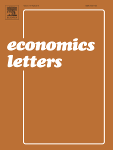Interpersonal comparisons and risk attitudes: an artefactual field experiment
| Year | : | 2019 |
|---|---|---|
| Author/s | : | Miguel Jaramillo, Kristian López |
| Area/s | : | Methodologies for research and evaluation of policy and programmes |
Researchers study the impact of interpersonal comparisons on risk preferences in an artefactual field experiment. In their experiment, each decision maker (DM) is randomly paired with someone else in her neighborhood and makes a series of decisions that allows us to measure her risk attitudes under one of three conditions: In treatment 1, the DM’s payoff is above the neighbor’s payoff with certainty. In treatment 2, the DM’s payoff is either above or below depending on her choices and the realized outcomes of the lotteries involved. In treatment 3, DM’s payment is below the neighbor’s payoff with certainty. The neighbor’s payment is fixed within each treatment. The authors derive three theoretical predictions from an extension of the expected utility theory to incorporate inequity aversion. Although, the evidence shows that risk attitudes are indeed affected by interpersonal comparisons, these findings are only partially consistent with the theory predictions.







